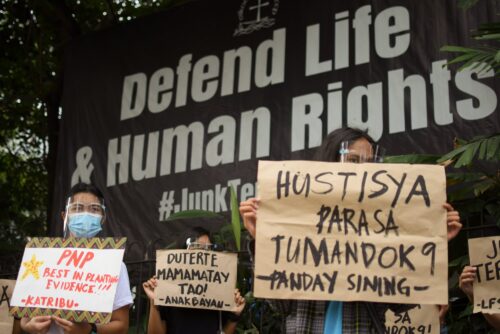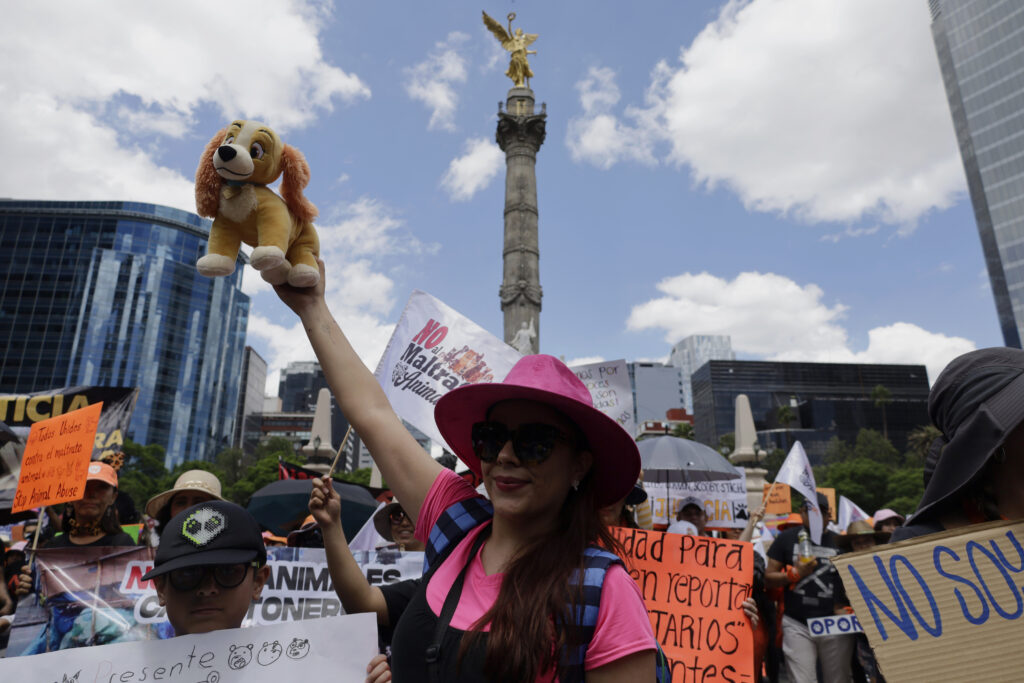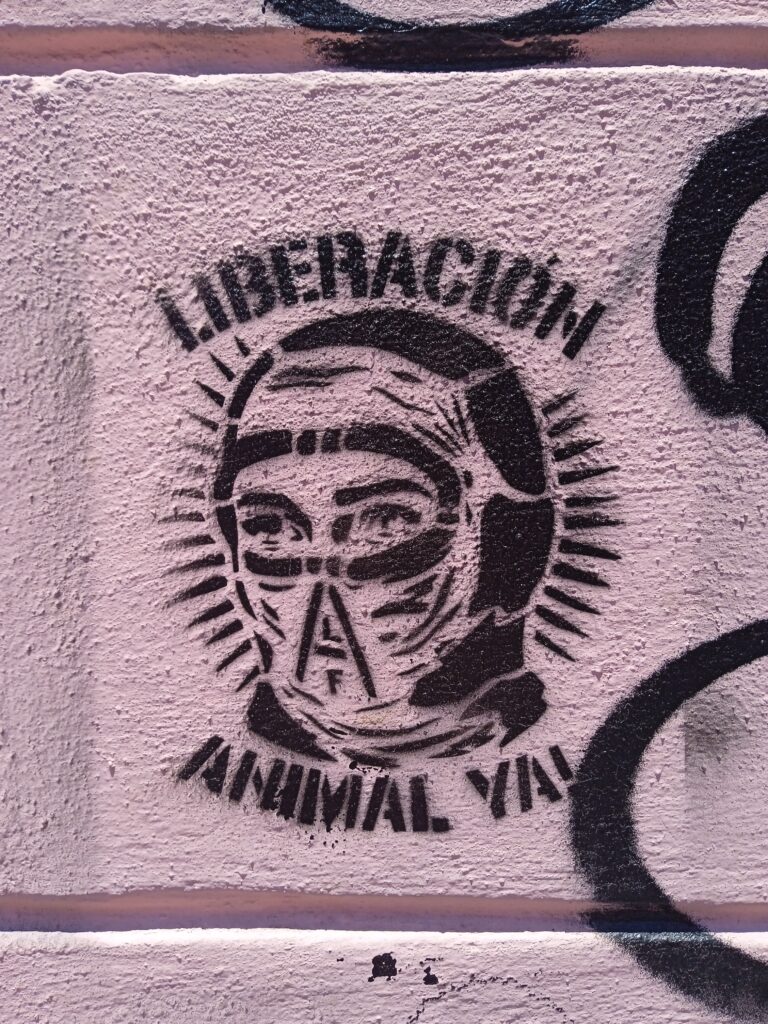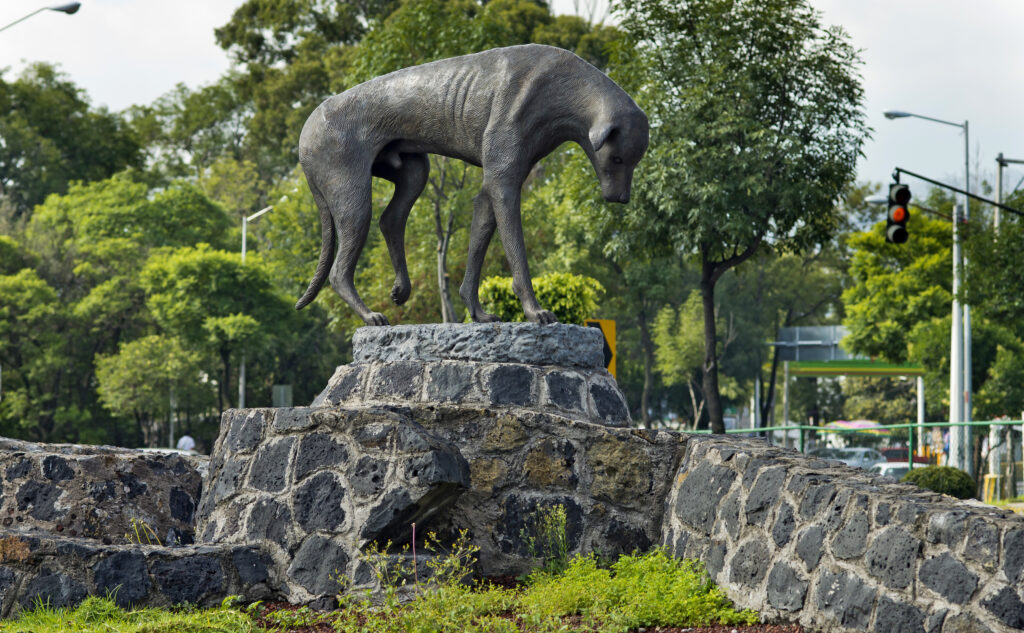Do Strict Criminal Penalties Protect Animals From Abuse?
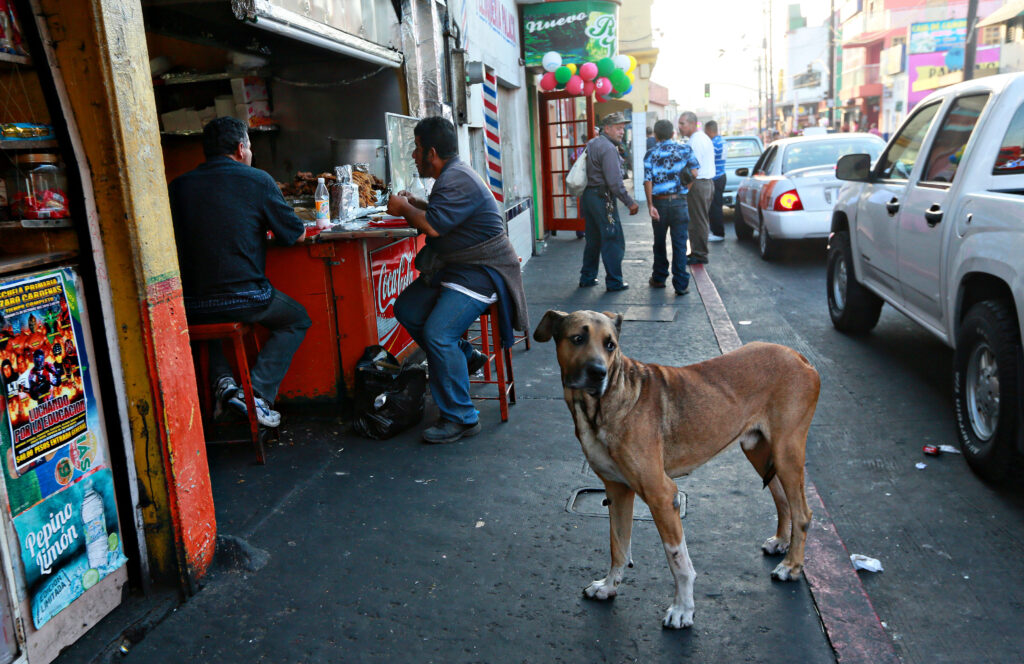
On April 18, 2021, hundreds of people throughout Mexico took to the streets to protest a death. A few weeks earlier, a disturbing video had surfaced showing a young man catching a dog unaware and striking him with an ax in front of a food stand. The video quickly went viral.
José, the man accused of killing Rodolfo Corazón, alleged that the dog had attacked his girlfriend. [1] [1] The last name of the accused has been removed to protect his identity. The dog was a brown and black “mestizo” (mixed breed) street dog from Los Mochis, a city in Sinaloa state. In the weeks after his death, animal protection activists and celebrities reposted his story on Twitter and Facebook with the hashtag #JusticiaParaRodolfo: justice for the slayed dog.
For many of the animalistas (animal protection advocates) who participated in the social media campaigns and in-person protests, the quickest way to attain something resembling justice for Rodolfo was through official criminal punishment. They demanded authorities arrest José, put him on trial, and sentence him to prison if found guilty.
Animal abuse is a widespread problem in Mexico and needs to be addressed. According to the nongovernmental organization AnimaNaturalis, in Mexico “seven out of 10 domestic animals suffer abuse [throughout their lives], and approximately 60,000 animals die every year” from abuse. This puts the country third in a worldwide ranking of animal abuse.
However, as an anthropologist studying the politics of animal protection activism in Mexico, I question whether top-down, punitive measures are the way forward. Rather than looking at imposing harsher penalties, I maintain that animal protection activism needs to focus on connecting the struggle for animal protection with other political movements in the country, such as environmentalism and anti-corruption efforts.
That would mean addressing the generalized climate of impunity and acceptance of violence in Mexico that puts both animals and humans at risk.
MEXICO’S ANIMALISTA MOVEMENT
Since 2016, I’ve been researching how the animal protection movement in Mexico has been pushing for tougher laws against those who abuse animals. As the activists I’ve spoken with point out, there are numerous cases of animal abuse similar to Rodolfo’s every day.
In Mexico, a majority of states (including Mexico City) have recently passed laws criminalizing animal abuse. Depending on the state, a conviction of animal abuse can lead to fines and prison stays of between 72 hours and four years. Some animalistas celebrate the passage of animal protection legislation as a stepping stone in the struggle to bring justice to nonhuman animals. Others say these laws do not go far enough—calling for even stricter laws and enforcement.
For instance, animalistas in Ciudad Juárez told me that even when people who abuse animals are found guilty of violating a law, the fines and penalties they face are too minimal to effectively deter future abuse. Even if an animal is removed from a home because it is malnourished, abused, or abandoned, none of the existing laws prevent someone who abuses from getting another animal.
Animalistas also pointed out that authorities are often unwilling to enforce animal protection laws at all, making them essentially letra muerta (dead letter): laws that exist but are generally ignored both by authorities and the public. This issue isn’t limited to animal protection laws; some reports indicate that only about 1 percent of crimes reported are resolved in Mexico.
In the case of Rodolfo, local politicians were quick to find the perpetrator, José, and send him to pretrial detention (prisión preventiva). Some animalistas saw his imprisonment as a “win” for the animal protection movement in Mexico. But, in the end, José was released after just 11 days because killing a street dog is not viewed as a criminal offense. Only pets are protected under current laws.
In 2022, a perpetrator who fatally poisoned two dogs and harmed a third received a 10-year jail sentence and had to pay damages and a fine amounting to around US$121,000—a watershed moment for animal abuse advocates. Yet the main reason the case received such widespread attention was that Athos and Tango, the two dogs who died, were part of the Mexican Red Cross. Along with others, Athos had become a national hero after rescuing people in an earthquake in 2017 and a volcanic eruption in 2018. Tango was a beloved emotional support animal. In other words, that case was the exception, not the rule.
For my research, I work with an animal protection organization called EcoCanis. The founder, Alicia Flores, told me her organization is essentially doing the government’s job by trying to rescue animals from abusive situations through enforcing laws. The existing laws, however, do not create any significant social change in how nonhuman animals are perceived or treated.
“It’s nothing but a Band-Aid,” she told me, with evident frustration.
THE POLITICS OF ANIMAL PROTECTION
Conversations with Alicia and others point to what I see as a fundamental issue: Animal abuse is not an isolated problem that can be solved through tougher laws and enforcement. Instead, violence against animals needs to be understood as part of a generalized climate of violence and impunity in Mexico.
However, many in the animalista movement maintain a narrow understanding of the scope of justice and animal well-being, failing to see how animal abuse is connected to broader social justice issues. In an interview, José Luis Carranza, a lawyer specializing in animal law, told me that, indeed, most animalistas are not particularly interested in electoral politics. Instead, they often vote on the single issue of animal protection. In turn, politicians from across the political spectrum in Mexico frequently exploit this and use “tough-on-crime” rhetoric when it comes to animal abuse as a strategy to gain voters.
The trend of politicians criminalizing animal abuse to gain voter support is not limited to Mexico. In 2017, Russian President Vladimir Putin extended the maximum prison sentence for animal cruelty from six months to five years. Along similar lines, Jair Bolsonaro, the former right-wing president of Brazil, increased jail sentences from one to five years for those who committed acts of animal cruelty against dogs and cats.
Many politicians on the left also support stricter laws protecting animals. For example, in the United States, the 2019 Preventing Animal Cruelty and Torture Act signed by then-President Donald Trump received support from Democrats and other left-leaning politicians. This bill made acts of animal cruelty a federal crime punishable with fines and up to seven years in prison.
As someone who cares deeply about animals’ well-being, I understand the significance of passing legislation to protect animals. However, focusing on the criminal punishment of individual, spectacular acts of violence against animals can detract attention from the more systematic threats and daily mistreatment some face. This includes the serious harms facing street animals, domesticated animals in industrial farming settings, and wild animals threatened by habitat loss.
To learn more, read on from the SAPIENS archives: “The Mexican River Defenders Fighting for the San Pedro.”
Scholars such as law professor Justin Marceau have argued that the U.S. animal protection movement often embraces a punitive war on animal cruelty without addressing how animal abuse is a social issue that should be solved through social transformation. In Mexico, similarly, members of the Partido Verde (PV, Green Party) have proposed especially harsh methods, such as automatic pretrial prison for perpetrators accused of animal abuse. This aligns with the organization’s broader approach to crime, also supported by MORENA, the ruling party, that includes hardline proposals to reinstate the death penalty.
To really achieve greater justice for humans and other animals, activists must stop pushing the narrative that harsher punishments and more prison time (or at least the threat of punishment and prison) make a society safer.
MOVING BEYOND PUNISHMENT
The case of Rodolfo can tell us a lot about justice and animal abuse in Mexico: A person perpetrates an act of extreme animal abuse, and the public responds with outrage on social media and in the streets. The government and local politicians propose a simple and straightforward solution: a harsh penalty for the perpetrator, appeasing popular outrage.
But when Rodolfo’s killer was released from prison days later, people were quiet on social media. That part of the story did not feed the punitivist fantasy that emphasizes criminal punishment as the only path to justice.
Focusing on individual cases of extreme violence that go viral on social media gives the impression that what is needed are quick and harsh responses. Politicians understand this trend and take advantage of it by pushing narratives that reify the idea that violence can be fixed by punishing individuals.
Animal protection activists must counteract this narrative by pushing beyond isolated solutions, sharpening their political narratives, and expanding the targets of their activism. They need to recognize that violence against animals is not due to a lack of laws but rather an undervaluation of life.





























